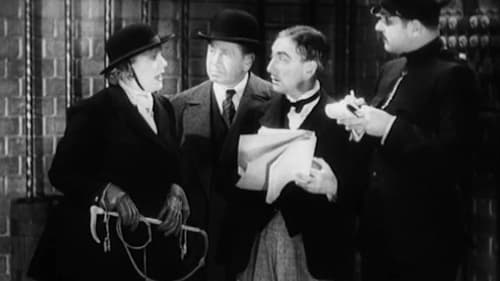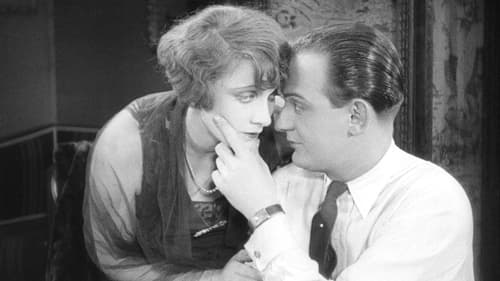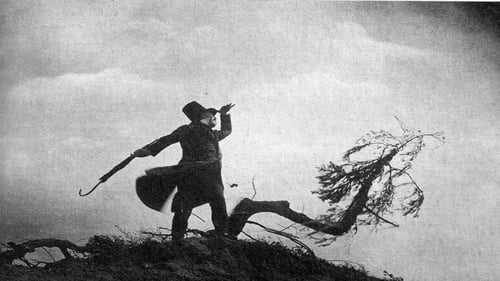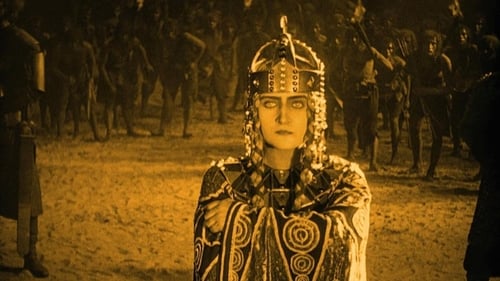Fritz Alberti
Birth : 1877-10-22, Hanau, Hesse, Germany
Death : 1954-09-15
History
Fritz Alberti was a German actor.

Oberstleutnant
Film by Randolf and Loos.

Dietrich, Bankier

Großfürst Cyrill

Der Graf

Hardenberg

Kapitän

This German crime drama was based on a true story. Willy Forst stars as a poverty-stricken Italian glazier who falls in love with French hotel maid Rosa Valletti. Struck by the girl's resemblance to Leonardo Da Vinci's Mona Lisa, Forst manages to steal the painting from the Louvre in hopes of impressing his sweetheart. But when the girl proves to be a fickle sort, the crestfallen hero confesses his crime and is carted off to jail. Unwilling to admit that he'd been led astray by a woman, Forst claims that he stole the Mona Lisa to restore it to his native Italy, and as a result is hailed as a national hero! Raub der Mona Lisa was distributed in the U.S. by RKO Radio, under the title The Theft of the Mona Lisa.

Verteidiger
A juror in a murder trial, after voting to convict, has second thoughts and begins to investigate on his own before the execution. German version of "Murder."

Gerichtspräsident
Suspicion surrounds a lieutenant for killing his father; based on Dostoevsky's novel.

Buchanan
The film focuses on the leadership of the Great Powers of Europe in the days leading up to the outbreak of the First World War.

Deren Vater
a music movie by Heinz Paul

Gustav Froehlich and Charlotte Susa play Rochus and Judith, the zwei menschen (two humans) of the title. Rochus' domineering mother insists that he enter the priesthood, but he is reluctant to break up his blissful romance with the fair Judith. A religious fanatic of the first order, the mother swears before God and her Church that Rochus will indeed take his vows. When this does not come about, she dies of grief, whereupon the guilt-stricken Rochus abandons Judith to become a priest. The girl subsequently commits suicide -- and it is Rochus who must officiate over her body during the funeral. This final scene was excised from the print of Zwei Menschen released in New York, leaving audiences hanging in regard to Judith's ultimate fate.

Also known as Darling of the Gods, this was Emil Jannings' second talkie appearance. Jannings stars as famed operatic singer Albert Winkelmann, who is greeted with cheers, applause and romantic propositions whenever he performs in his native Vienna. But when he embarks on a tour of South America, tragedy strikes. The sweltering climate causes Winkelmann to lose his voice on stage, a disaster met with hoots and cat-calls. Dispirited he returns to Europe, where he soon learns that no one is aware of what happened in South America. Intending to retire so as not to be exposed to further humiliation, Winkelmann is goaded back on stage -- where, miraculously, his gorgeous voice returns.

Herr Schwab

Kommerzienrat Berger

Nicolai I.
Ivan Mozzhukhin is a "...hot-headed Caucasian mountaineer leader whose irrational behavior comes to the attention of the Czar . Hoping to use Hajji Murad as a go-between in his plans to conquer the Caucasus mountaineers, the Russian ruler finds that the hero is not so easily manipulated. Rescuing the beautiful Saira from the Czar's clutches, Hajji Murad leads the mountain people's revolt against the despotic regent." Needless to say, the film ends in tragedy.

The captain of the luxury liner
A young doctor gets stuck on a ship after treating an injured first mate. Later, he rescues a woman from plane wreckage, and with the help of the cook, he hides her away from the rowdy and dangerous crew.

Jean Bourtyne

George Manolescu (Ivan Mouskojine) plays a confidence man who works his way from Paris to New York, along the way during a train ride to Monte Carlo he meets the voluptuous as always Cleo (Bigitte Helm) where they have a whirl wind romance which becomes short lived after she flees from him.

General Trunoff
Drama of plot and intrigue in Imperial Russia.

van Straaten

Rasmussen
When Hamburg ship's mate Klaus Brandt catches a thief one night at the port, his downfall is pre-ordained. For the thief turns out to be a young, attractive woman and the otherwise upright sailor allows her to slip away. Jenny is the star of a local dive bar, with a side-line in smuggling.

Oberst von Lobach

Allyher
A handsome barber in Sweden doesn't know he's actually the Crown Prince of a Balkan kingdom in this charming Swedish-German comedy that effortlessly weaves together multiple Ruritanian tropes.

Kommerzialrat Göttlinger Ernis Vater
The daughter of a wealthy industrialist falls for a pickpocket.

Konsul Harper - Tulls Vater
König der Mittelstürmer / King of the Centre Forwards refers with the name of its hero to the German soccer legend of the twenties: Tull Harder, star of the Hamburger Sport Verein (HSV). But the story itself is completely fictitious: The son of a trade company's director falls in love with the daughter of a big American oil magnat. But she suspects him to be only interested in her money. So she buys his father's company to take revenge on him. The son's true love is soccer, and from the very first moment the soccer fever is present throughout the film. It starts with pictures of a soccer game and even an apple or a crumpled up paper must serve as substitute for a ball. Whereas Die elf Teufel promotes soccer as "the sport of the century", König der Mittelstürmer shows the hero's father who still has to be convinced from its importance. He hates soccer and blames everybody to be "soccer crazy".

Lauren, der Trainer
Die elf Teufel / The Eleven Devils was made in Berlin in the summer of 1927, in the last throes of the silent movie era. But Die elf Teufel strikes one today as a prophetic film. One of its early captions is "Football, the sport of the century ". We are shown a ball bathed in light like some sacred relic, and observe how, even in those early days, fans on the terraces wouldn't shy away from using their fists.

Elizabeth Fullers Gatte
a silent war movie by Heinz Paul

Creative Human - Man Who Convinces Babel (uncredited)
In a futuristic city sharply divided between the rich and the poor, the son of the city's mastermind meets a prophet who predicts the coming of a savior to mediate their differences.

Regierungskommissar
The story of Brennende Grenze (= Burning Border) starts after the end of WWI. Polish franctireurs invade the German bordering regions which are to be given to Poland as agreed on in the post-war peace treaties. Luise von Willkühnen's manor is invaded by Ladislaus von Zeremski, his lover Nadja and their gang. They treaten the inhabitants until Luise's son kills Zeremski.

Reichsgraf von Schwarzenberg
For Balduin, going out to beer parties with his fellow students and fighting out disputes at the tip of the sword have lost their charms. He wants to find love; but how would he, a penniless student, ever dare looking up to any woman worth of loving? Absorbed in his dreary thoughts and indifferent to the advances of Lyduschka, Balduin is unexpectedly offered a fortune by the mysterious money-lender Scapinelli - but on a strange condition...

Mills

Dietrich von Bern
When Kriemhild, thirsty for revenge, marries to Etzel, king of the Huns, she invites King Gunther and his court to visit them, intending to finally take the life of the man responsible of her disgrace.

Dietrich von Bern
Siegfried, son of King Siegmund of Xanten, travels to Worms, capital of the Burgundian kingdom, to ask King Gunther for the hand of his sister, the beautiful Kriemhild.

















